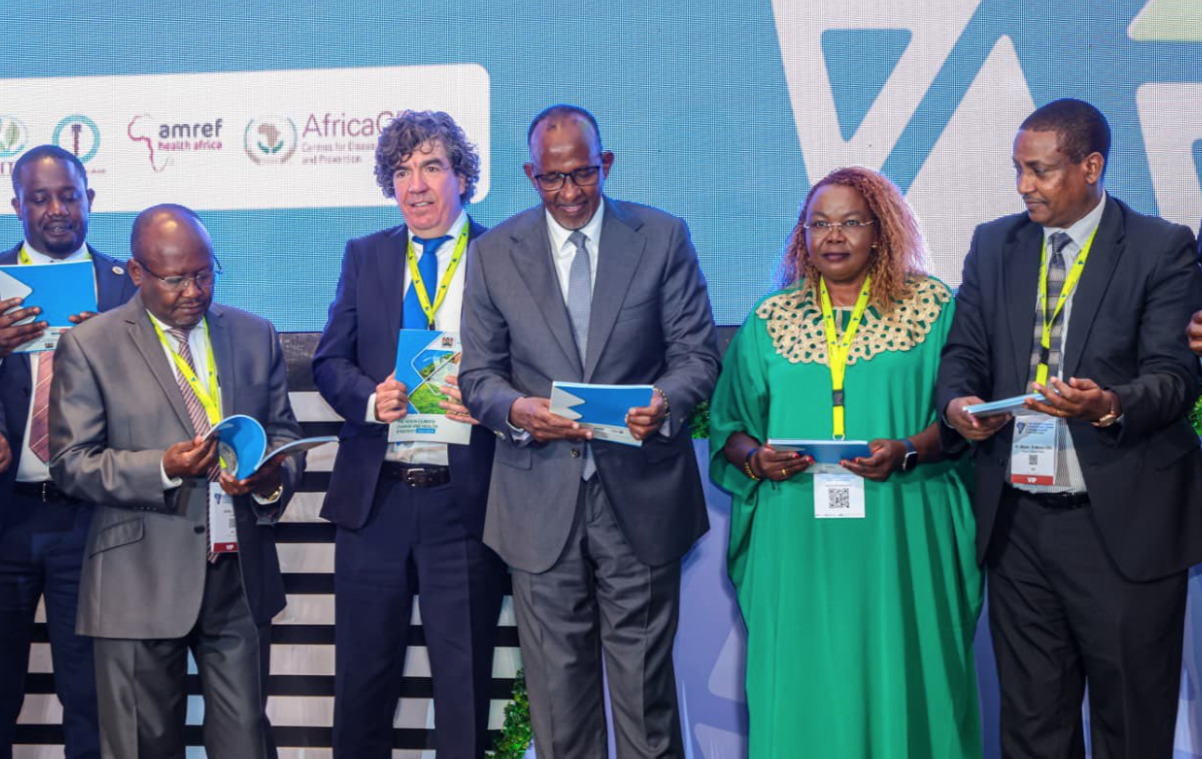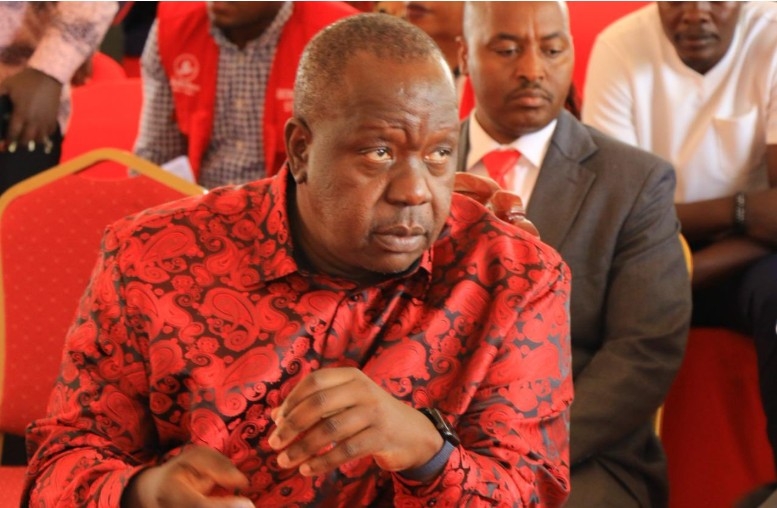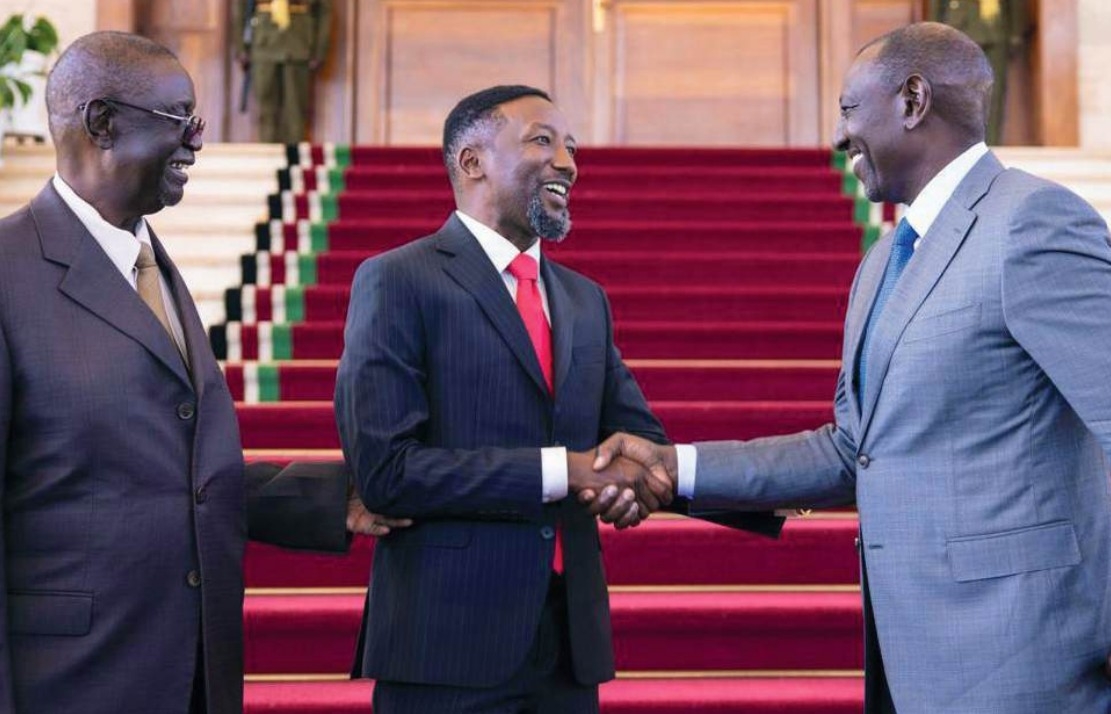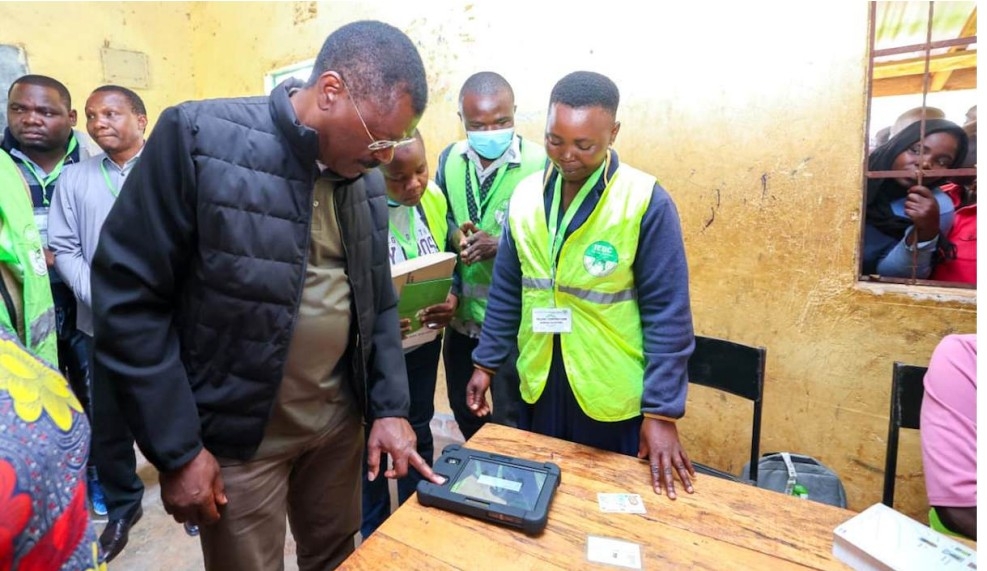
 Health Cabinet Secretary Aden Duale at the opening of the Pan-African Conference on Environment, Climate Change and Health in Nairobi/HANDOUT
Health Cabinet Secretary Aden Duale at the opening of the Pan-African Conference on Environment, Climate Change and Health in Nairobi/HANDOUTHealth Cabinet Secretary Aden Duale has called on African nations to take a leadership role in championing fair climate financing, equitable technology transfer, and homegrown research capacity.
Duale said African nations must lead in tackling the worsening intersection of climate change and public health.
Speaking at the 4th Pan-African Conference on Environment, Climate Change, and Health in Nairobi, Duale said Africa must go beyond simply demanding climate justice—it must also define its path forward as an innovator and global partner.
“This is Africa’s moment to lead—not as victims of a crisis we did not create, but as champions of climate justice, adaptation, and innovation,” Duale said.
The conference, attended by top scientists, policymakers, and development partners from across the continent, seeks to tackle what experts describe as one of the most defining challenges of the 21st century; the climate-health nexus.
Duale urged delegates to move the continent from “awareness to action, vulnerability to resilience, and pledges to progress,” emphasising that climate change is no longer a distant concern, but “the greatest health threat of our century.”
“In Kenya and across East Africa, the devastating floods, droughts, and disease outbreaks of recent years have revealed the inescapable truth: climate and health are two sides of the same coin,” he said.
Other speakers further emphasised the scale of the crisis.
Dr. Joanes Atela, Executive Director of the Africa Research and Impact Network (ARIN), said the disproportionate climate impacts on Africa—especially among vulnerable communities—must be understood beyond the health sector.
“Deteriorating air quality is a major environmental risk to
public health, accounting for nearly seven million premature deaths globally
every year, with the African continent being disproportionately affected,”
Atela noted.
Atela added that climate effects on agriculture directly undermine efforts to eliminate hunger and malnutrition, stressing the need for multi-sectoral action.
The World Health Organisation (WHO) Africa regional team lead for climate change , health & environment, Dr. Jeremiah Mushosho, also issued a strong warning during the conference, declaring climate change the greatest health threat of the 21st century.
“Africa is among the most vulnerable regions of the world due to its general state of socioeconomic underdevelopment and low adaptive capacities,” Dr Mushosho said in a statement.
WHO pointed to a surge in vector- and waterborne diseases, including an unprecedented rise in cholera outbreaks linked to climate-induced disasters.
“In 2023 alone, cholera outbreaks across Africa were largely associated with extreme weather events such as floods and cyclones,” Dr Mushosho said.
The conference's theme, “Harnessing Science, Policy, and Partnerships for Environmental Sustainability and Climate-Health Resilience,” sets a bold agenda—and, according to Duale, it must translate into real results.

















